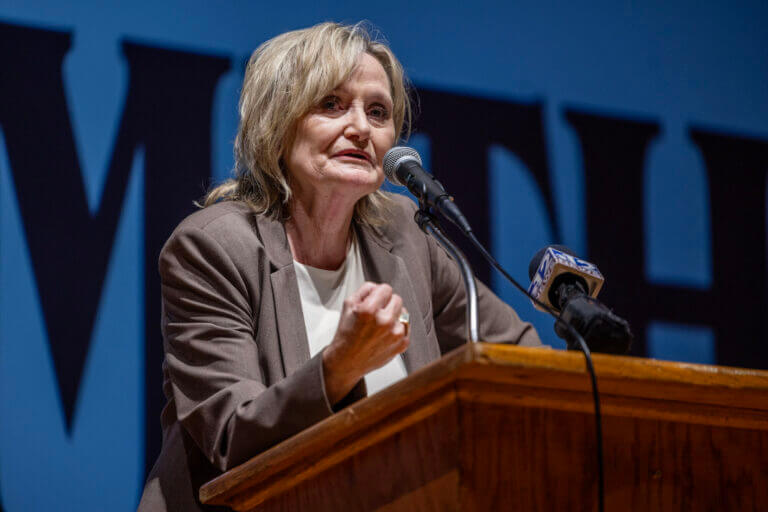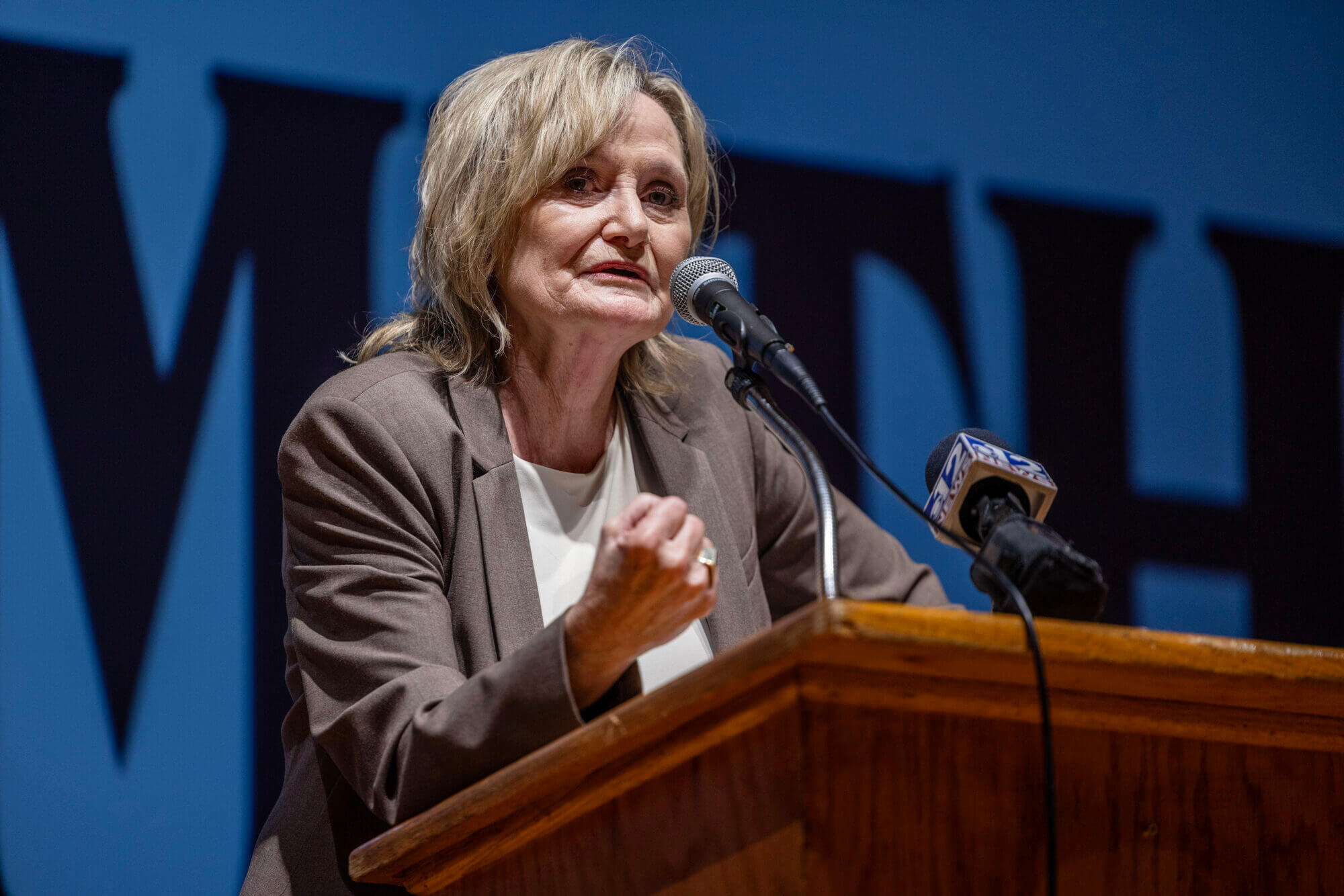

The expected rising costs for health insurance could give Democratic candidate Scott Colom a line of attack in next year’s election against incumbent Republican U.S. Sen. Cindy Hyde-Smith.
It is an issue that will hit tens of thousands of Mississippians right dab in their faces and in their pocketbooks when they go to renew their health insurance policies later this year and see how much their monthly premiums have increased.
Colom, a longtime district attorney from Columbus, can hammer Hyde-Smith for the rising costs. After all, the rising costs could be traced directly to Hyde-Smith and her allies if the Republican-led U.S. Congress and President Donald Trump do not act to prevent the increase in health insurance premium costs for about 285,000 Mississippians who purchase coverage through the Affordable Care Act exchange or marketplace.
Unless Congress acts before the end of the year, the price of the marketplace’s health insurance policies will increase an estimated $480 annually in Mississippi, according to KFF, a national group that conducts health care research. And based on other factors, such as inflation, the increase could be significantly more.
While the enhanced federal assistance helps primarily lower income people or the working poor, the end of the enhanced federal assistance also could mean more affluent Mississippians who depend on the marketplace policies would no longer be eligible for any federal help.
During the administration of former President Joe Biden, lawmakers passed legislation to enhance the federal aid provided to people who purchase insurance through the ACA marketplace. Lower income people already received some help with the cost of the marketplace policies as an important part of the Affordable Care Act, but the Biden-era legislation increased the amount of help. And under the Biden legislation, wealthier people would be eligible for federal assistance if their health insurance costs more than 8.5% of their total earnings.
Hyde-Smith, like other members of the Mississippi congressional delegation, voted against the enhanced federal assistance for the marketplace policies.
In the so-called One Big Beautiful Bill passed earlier this year, Trump and the Republican Congress were careful to ensure that the cuts to Medicaid and other programs would not go into effect until after the 2026 midterm election, when Colom is challenging Hyde-Smith.
But Congress did not take any action in the One Big Beautiful Bill to ensure that the enhanced federal marketplace assistance did not end before the 2026 elections, leaving rising health care costs as an issue for Colom and others.
Mississippi will be hit particularly hard by the end of the federal aid for the cost of marketplace policies.
Participation in the marketplace by Mississippians has increased 242% in recent years since the enhanced federal assistance program was enacted, according to KFF. Only Texas has seen a greater increase at 255%.
Unsurprisingly, the states where the participation has increased the most are all red states that in most cases have not expanded Medicaid to provide health insurance for primarily the working poor, with the federal government paying the bulk of the costs. In states where there is no Medicaid expansion, data shows that the working poor flocked to the exchange to garner health insurance.
It should be pointed out that the end of the enhanced federal assistance for marketplace policies will hurt not just those having to pay the higher premiums for the marketplace policies, but the state of Mississippi as a whole. Hospitals and other medical providers, already struggling, will be forced to provide more uncompensated care or pass those costs on to other Mississippians who do have health insurance.
Despite those health care issues, Hyde-Smith will be a heavy favorite to win reelection in Mississippi, where a Democrat has not won a U.S. Senate election since 1982.
But if Colom can connect rising health insurance costs to Hyde-Smith, that could be a powerful issue.
Of course, Hyde-Smith and the Republican Congress have until the end of the year to act and prevent people from having to pay more for marketplace plans.
- State fire marshal is investigating troubled Unit 29 at Parchman prison - February 26, 2026
- Mississippi’s Winter Storm Fern losses exceed $107 million, state insurance department says - February 26, 2026
- DNA evidence linked to a Greenville homicide is missing. Now the finger-pointing begins - February 26, 2026